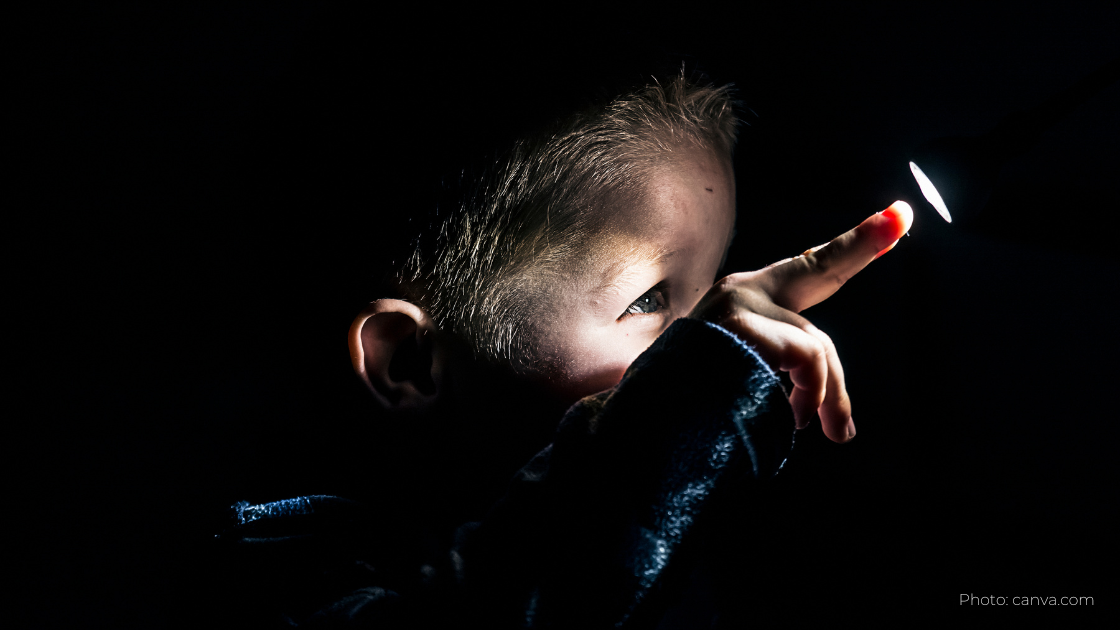When my daughter is agitated and frustrated, she can be impatient and snappy with me. I’ve had to learn not to shame her for that or make her ‘show me respect.’ Her frustration is an emotion that I want her to feel, I want her to feel the complex emotionality of being human, and in order to do that I have to allow her to have that. I have to give her permission to not be her best self, I have to provide safety in our relationship by allowing her to unravel, complain, and be messy.
My job isn’t to create a homeostasis environment focussed on making things comfortable for me or others around me. I have to be OK with people thinking that she’s treating me poorly in order for her to experience herself. When she’s experiencing emotions that don’t fall under what’s socially acceptable, I work on allowing instead of trying to control.
It’s tempting to temper her; it’s enticing to create an environment of control to make things peaceful. But if my focus requires everything to be a certain way for me to feel OK, it’s not her that I need to try to manage, it’s myself that needs some healing.
Culturally we’ve shifted to extreme places, where when someone has an opinion that differs from ours is so offensive that we will go to great lengths to cancel or diminish them in order to feel comfortable in our own body.
We’re not meant to live in an echo chamber, we’re not meant to have everyone see the world the same way we do. We should be asking why we get so triggered by someone else’s belief, not saying,‘That person is an idiot for taking a different perspective.’ But, why does it affect me so much?
We ridicule people for agitating us, for the discomfort we feel when they have their own emotions.
Think of the extreme things we believed through the pandemic, on all sides – if someone didn’t get a shot they weren’t thinking of the betterment of humanity, while for others, if they did get the shot, they’re all sheep being herded by big pharma. These are simple examples that we’ve all been living, but they are detrimental to our collective humanity.
If we can’t allow someone to have an opinion that differs from ours, it’s not about them, it’s about us.
If we break the rules of what society agrees on, we get in trouble. If we don’t have the space to explore different ideas, we become less tolerant and patient, we become less curious and more judicial. Believing that we need to be the judge of all things.
My intention with my relationship with my daughter is to be a place of safety for her so she can explore herself, ideas, and emotions in living colour. That allows her to feel safe and trusting of our relationship.I know I can do this better, I’m certain there are ways that she feels like she can’t express herself. Yet I try to support her to be herself, even through the judging eyes of others.
If we can’t do this for each other, we’re creating an environment that lacks safety in our communities. My community has a public forum for posting thoughts, and there’s almost always someone that responds to any given post offensively. There’s always someone who can take offense to someone else’s ideas or comments.
If we can’t allow people to have opinions that differ from ours, how are we supposed to create dialogue for hot topics? How are we supposed to discuss the truly important things if we act like a mob when someone pushes a boundary or a belief on a given topic. How do we create space for new ideas if we want everyone to stay-in-line. To be following along instead of being curious.
Be conscious with your language, be kind and thoughtful, but also be curious. Don’t get ‘back in line’, push a bit. Don’t feel like you need the people closest to you, your kids, partners, or friends, to show up in a way that is always socially acceptable. Allow people to push past the edges.
If we need those in our own life to behave, think, or react in certain ways it’s a guarantee that we’re easily offended by those who are curious and that we ourselves have a lot of personal healing work to do.
If you genuinely want a kinder and more tolerant world, you must first start in your own home and social circle. We must see the ways we’re intolerant to those in our lives that challenge us, become aware of what challenges you. Watch the myriad of reactions that respond to opposing beliefs, in order to see how that creates cultural norms, how we become part of the problem.
We create unsafe environments when people don’t have the ability to express themselves. Everything doesn’t need to be politically correct, in fact, our attachment to everything needing to be a certain way, to being said or thought in the ‘right way’ is exactly what causes us and others so much grief.
Becoming someone who wants to help the world heal is about healing the need to have everyone conform to our beliefs and healing the parts of ourselves that feel exposed when someone has a differing opinion.
With love,
noelle

